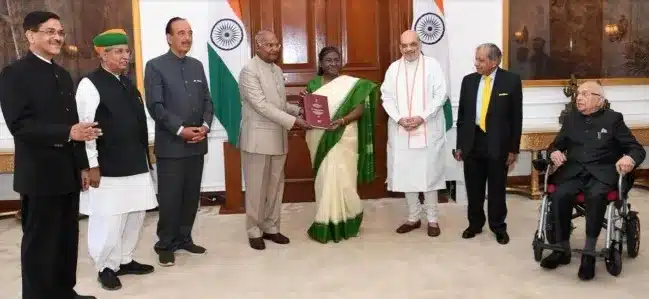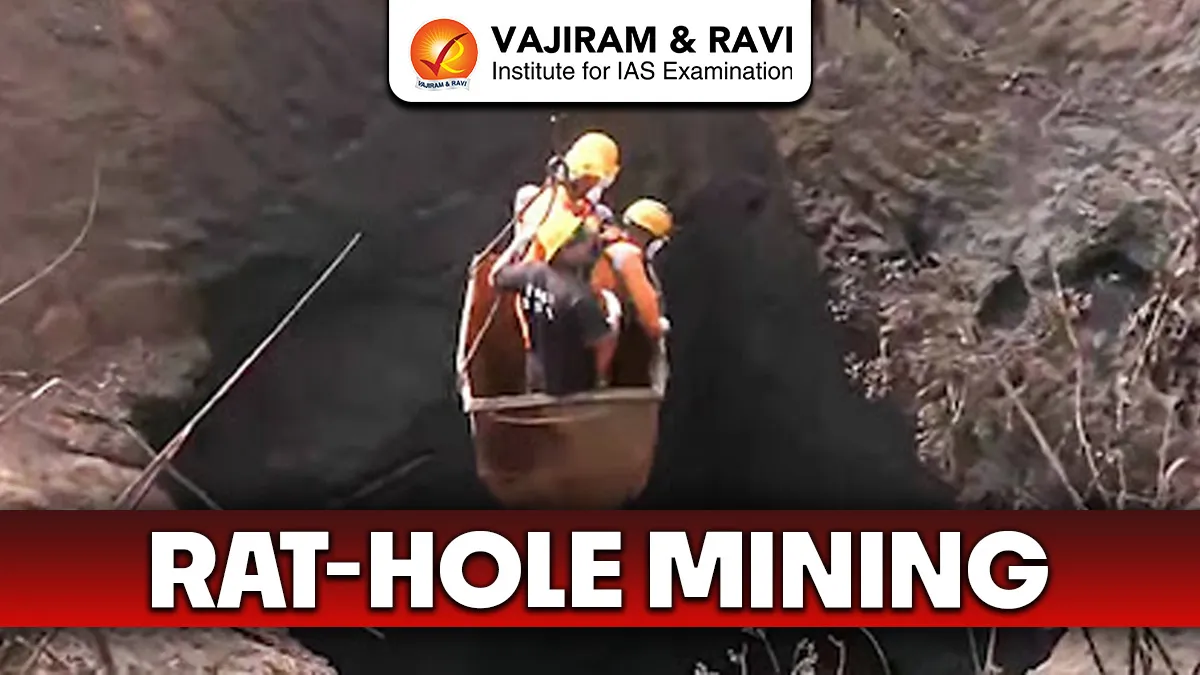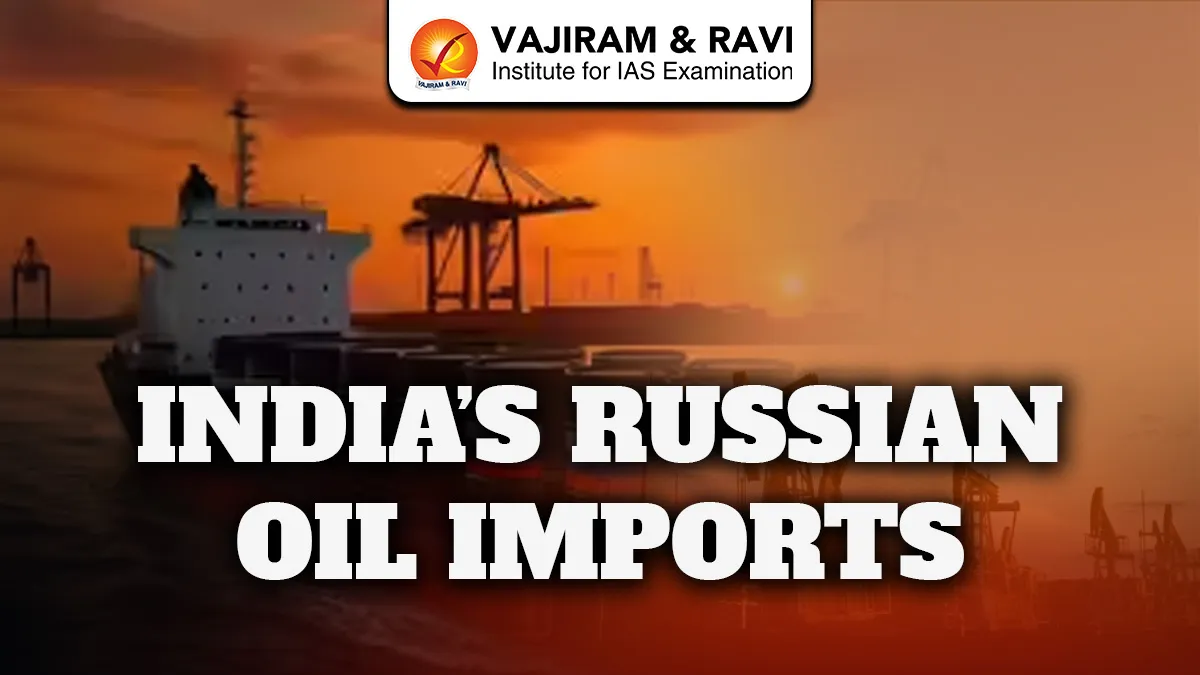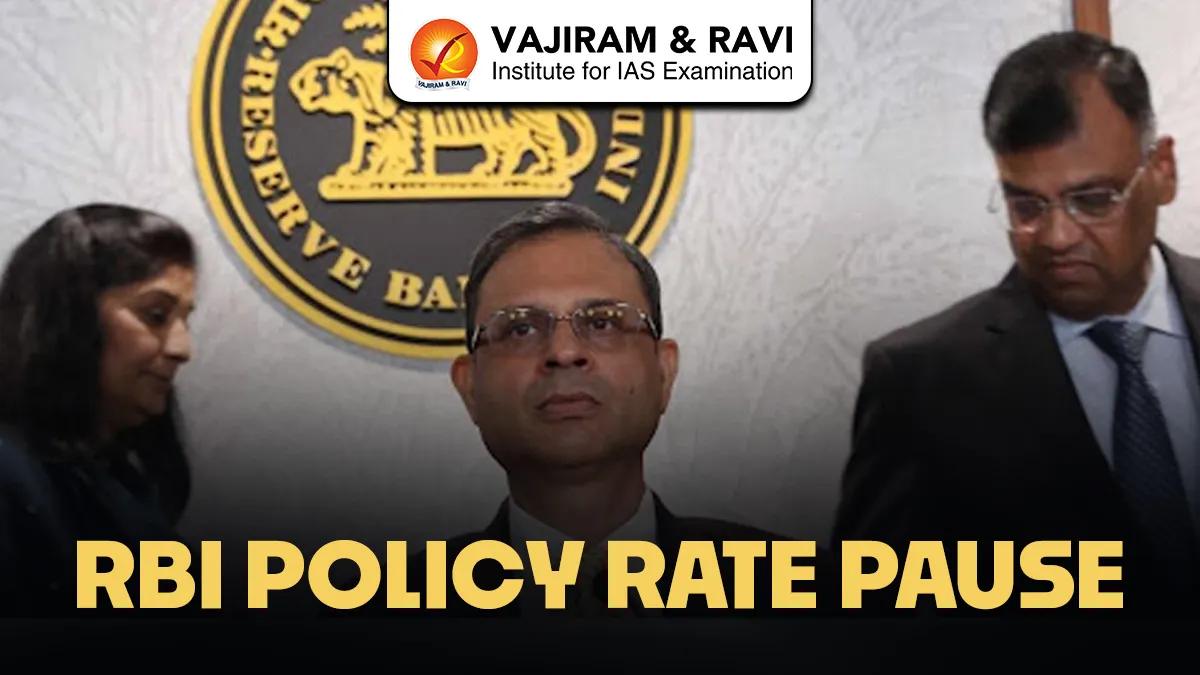What’s in today’s article?
- Why in news?
- Simultaneous elections in India: Meaning
- History of Elections in India
- High-level Committee (HLC) on One Nation, One Election
- Key recommendations of the HLC
Why in news?
The High-level Committee (HLC) on One Nation, One Election submitted its report to President Droupadi Murmu. The report said that simultaneous elections would lead to a fundamental transformation in the electoral process and overall governance.
The HLC, popularly known as the Kovind panel after its chairman, former President Ram Nath Kovind, was constituted in September 2023.
What is One Nation One Election?
- The concept of “One Nation, One Election” envisions a system in which all state and Lok Sabha elections must be held simultaneously.
- This will entail restructuring the Indian election cycle so that elections to the states and the centre coincide.
- This would imply that voters will vote for members of the LS and state assemblies on the same day and at the same time (or in a phased manner as the case may be).
History of Elections in India
- Era of simultaneous elections
- The first general elections of free India held simultaneously to the Lok Sabha and the Legislative Assemblies of the States in 1951.
- The next three cycles of elections also witnessed concurrent Lok Sabha and Legislative Assembly elections barring a few stray cases like:
- Kerala where a mid-term election was held in 1960 on the pre-mature dissolution of the Assembly, and
- In Nagaland and Pondicherry where the Assembly was created only after the 1962 general elections.
- The last occasion when we had near-simultaneous elections was in 1967.
- Beginning of the end of simultaneous elections
- The fourth Lok Sabha constituted in 1967 was dissolved prematurely in 1971. This was the beginning of the end of simultaneous elections.
- Extension of the term of Lok Sabha during the National Emergency declared in 1975 and the dissolution of Assemblies of some States after the 1977 Lok Sabha election further disturbed the cycle of concurrent elections.
- Current status
- In 2019, only 4 States had their assembly elections, along with the Lok Sabha.
- We now have at least two rounds of Assembly general elections every year.
Key recommendations of the HLC
- Simultaneous election by 2029
- The panel recommended amending the Constitution so elections for the Lok Sabha, all state assemblies and local bodies can be held by 2029.
- Amending the Constitution (two steps)
- In all, 18 amendments to the Constitution and other statutes have been suggested.
- In the first step, simultaneous elections will be held to Lok Sabha and State Assemblies.
- To achieve synchronisation at the first step, the government should take a one-time step where they pick a specific date after a Lok Sabha election.
- After this date, the terms of all state assemblies that have elections will end along with Parliament’s term.
- To effect these changes, the panel has recommended amendments to Article 83 (duration of Houses of Parliament) and Article 172 (duration of State legislatures) of the Constitution.
- For this, no ratification by the states will be required for the constitutional amendment.
- In the second step, elections to municipalities and the panchayats will be synchronised with elections to Lok Sabha and state Assemblies.
- This will be done in such a way that local body elections are held within 100 days of the elections to Lok Sabha and state Assemblies.
- This will require ratification by not less than one-half of the states.
- Insertion of Article 324A
- The committee recommended an Article 324A, which states that Parliament may make a law to ensure that elections to municipalities and panchayats be held together with General Elections.
- Single electoral roll and election ID
- To make single electoral roll and electoral photo identity cards for use in elections to all the three tiers of government, the committee recommended that Article 325 of the Constitution be amended.
- Then only, Election Commission of India can prepare a single electoral roll and election ID in consultation with the State Election Commissions.
- These amendments will require ratification by not less than one-half of the states.
- In case of hung house
- In the event of a hung House, a no-confidence motion, or any such event, fresh elections should be held to constitute the new Lok Sabha or state Assembly for the unexpired term of the House.
- Meeting logistics requirement
- The committee suggests that the Election Commission of India should plan ahead with State Election Commissions for things like manpower, polling staff, security forces, and voting machines to ensure fair elections across all levels of government at the same time.
- Rejected the Germany model of bringing no-confidence motion against a government
- The committee rejected the concept of constructive vote of no-confidence, which is the model in Germany.
- In this model, to bring a no-confidence motion against a government, a positive vote of confidence in an alternate leader or government is required.
- The committee said that the prevailing Parliamentary practice in this regard is appropriate and does not require any change.
- Making a motion of no confidence by the Members of Parliament is not only their right, but also their responsibility. The Committee would not like to dilute this feature of the Indian Parliamentary system.
- The committee rejected the concept of constructive vote of no-confidence, which is the model in Germany.
Q1) What is an electoral roll?
An electoral roll is a list of people who are eligible to vote in a specific jurisdiction. It’s usually broken down by electoral districts and is made to help election officials at polling places.
Q2) What is Article 325 of Indian Constitution?
Article 325 of the Indian Constitution states that no one can be excluded from a special electoral roll based on their religion, race, caste, or sex. It also states that there will be one general electoral roll for each territorial constituency for elections to either House of Parliament or to the House or either House of the Legislature of a State.
Last updated on February, 2026
→ UPSC Notification 2026 is now out on the official website at upsconline.nic.in.
→ UPSC IFoS Notification 2026 is now out on the official website at upsconline.nic.in.
→ UPSC Calendar 2026 has been released.
→ Check out the latest UPSC Syllabus 2026 here.
→ Join Vajiram & Ravi’s Interview Guidance Programme for expert help to crack your final UPSC stage.
→ UPSC Mains Result 2025 is now out.
→ UPSC Prelims 2026 will be conducted on 24th May, 2026 & UPSC Mains 2026 will be conducted on 21st August 2026.
→ The UPSC Selection Process is of 3 stages-Prelims, Mains and Interview.
→ Prepare effectively with Vajiram & Ravi’s UPSC Prelims Test Series 2026 featuring full-length mock tests, detailed solutions, and performance analysis.
→ Enroll in Vajiram & Ravi’s UPSC Mains Test Series 2026 for structured answer writing practice, expert evaluation, and exam-oriented feedback.
→ Join Vajiram & Ravi’s Best UPSC Mentorship Program for personalized guidance, strategy planning, and one-to-one support from experienced mentors.
→ UPSC Result 2024 is released with latest UPSC Marksheet 2024. Check Now!
→ UPSC Toppers List 2024 is released now. Shakti Dubey is UPSC AIR 1 2024 Topper.
→ Also check Best UPSC Coaching in India






















